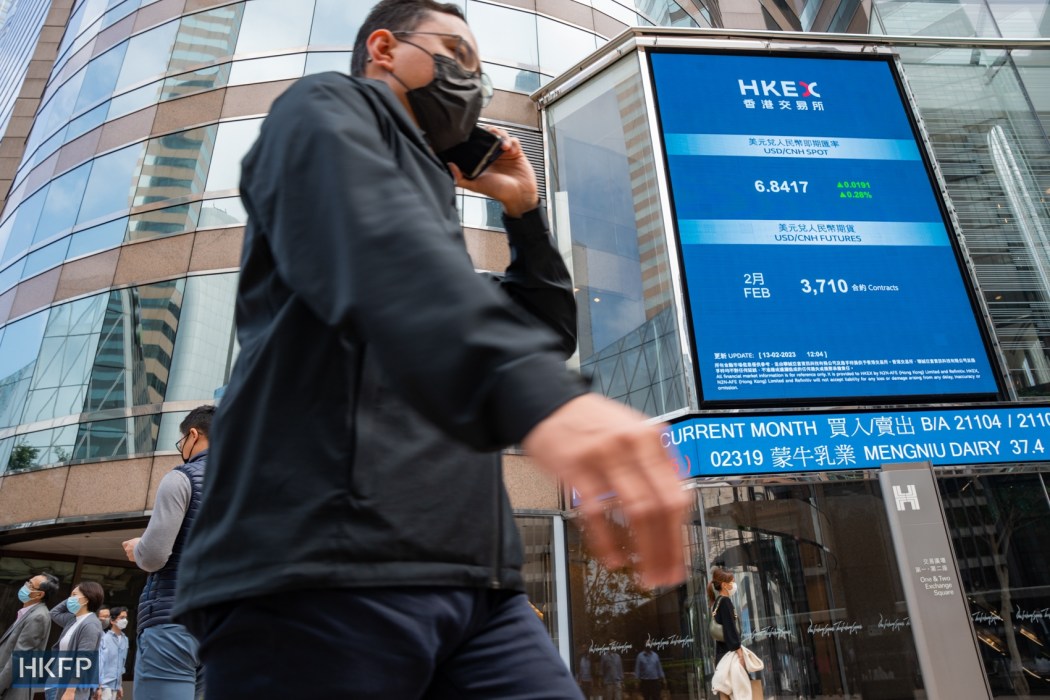Bonds issued by the government will not be used to cover recurrent costs, Secretary for Finance Paul Chan has said, after his predecessor warned that the consequences of doing so would be borne by “generations to come.”
Chan told Metro Radio on Monday that Hong Kong would balance the books within three years, a day after former finance minister John Tsang said on Facebook that the government had fallen into structural deficit.

“It is undeniable that Hong Kong has fallen into an era of structural deficit,” Tsang wrote in Chinese, adding that the government needed to cut costs and consider new revenue streams.
Delivering his budget speech last Wednesday, Chan said Hong Kong expected to record a deficit of HK$101.6 billion for the current fiscal year.
Tsang said it was impossible to envision any measures to boost revenue that would not “bring great pain.”
‘A drop in the bucket’
Measures introduced last week, including a two-tier salaries tax system and progressive rates on residential property, would only bring in around HK$2 billion, Tsang said, calling the amount “a drop in the bucket” compared to the tens of billions needed to break even.

Rather than being used to cover the government’s recurrent costs, bonds should only be issued to finance large-scale development projects that yield economic returns, Tsang said. Given the high interest environment, residents would rather put their money in the bank than buy government bonds, he added.
“If bonds are issued year after year… it won’t be long before Hong Kong’s wallet dries up,” Tsang, who was the city’s financial secretary from 2012 until 2017, said. “To pay off interest on the debts, tax and fee hikes followed by drastic cuts to public services will be borne by generations to come.”

The government needed to cut recurrent costs and “keep an eye” on non-recurrent spending, “otherwise, there is no way out of the structural fiscal deficit,” Tsang said.
Investing in development
Chan said on Monday that the HK$120 billion bond issuance unveiled in last week’s budget would “definitely” not be used to fund recurring expenditure, and would instead finance infrastructure projects.
That would include the Northern Metropolis scheme and the Hung Shui Kiu Ha Tsuen New Development Area, the Financial Secretary’s Office told local media on Sunday.
Chan said the government’s operating account would be brought back to black in two years, and the consolidated account in three, adding that there was “no need to worry” about a structural deficit.
He said investing in development projects would ensure sufficient land and housing, adding that home prices tripled between 2007 and 2016 because the government underinvested in infrastructure and did not make enough land available.
“We will definitely take control of land supply and at the same time, we have been closely monitoring the property market to ensure an adequate supply of residential flats,” Chan said.
Echoing development minister Bernadette Linn’s remarks on Saturday, Chan also said the delayed Kau Yi Chau artificial islands project would not have an effect on land and housing supply.
Support HKFP | Policies & Ethics | Error/typo? | Contact Us | Newsletter | Transparency & Annual Report | Apps
Help safeguard press freedom & keep HKFP free for all readers by supporting our team

LATEST FROM HKFP
HKFP has an impartial stance, transparent funding, and balanced coverage guided by an Ethics Code and Corrections Policy.
Support press freedom & help us surpass 1,000 monthly Patrons: 100% independent, governed by an ethics code & not-for-profit.










